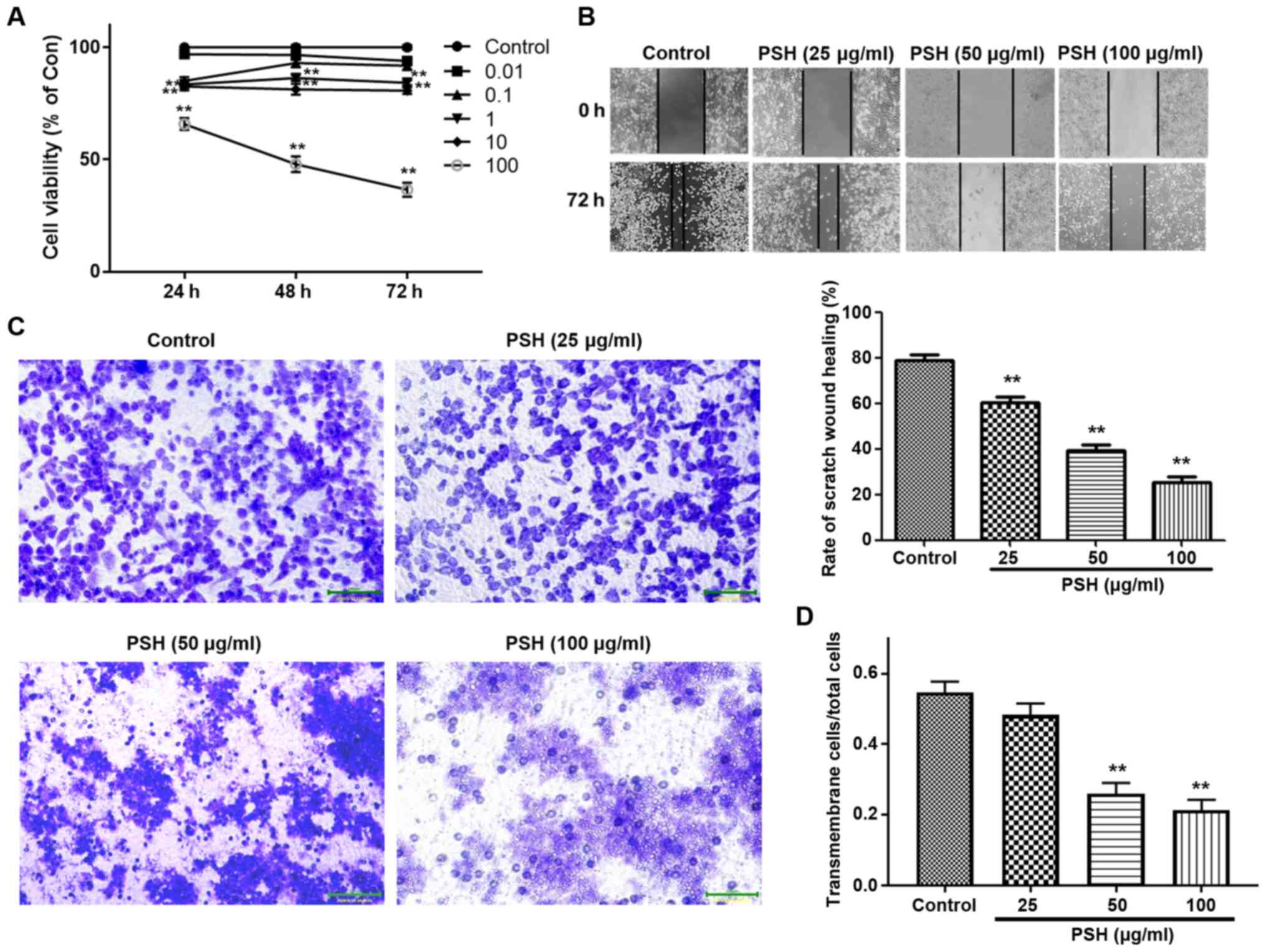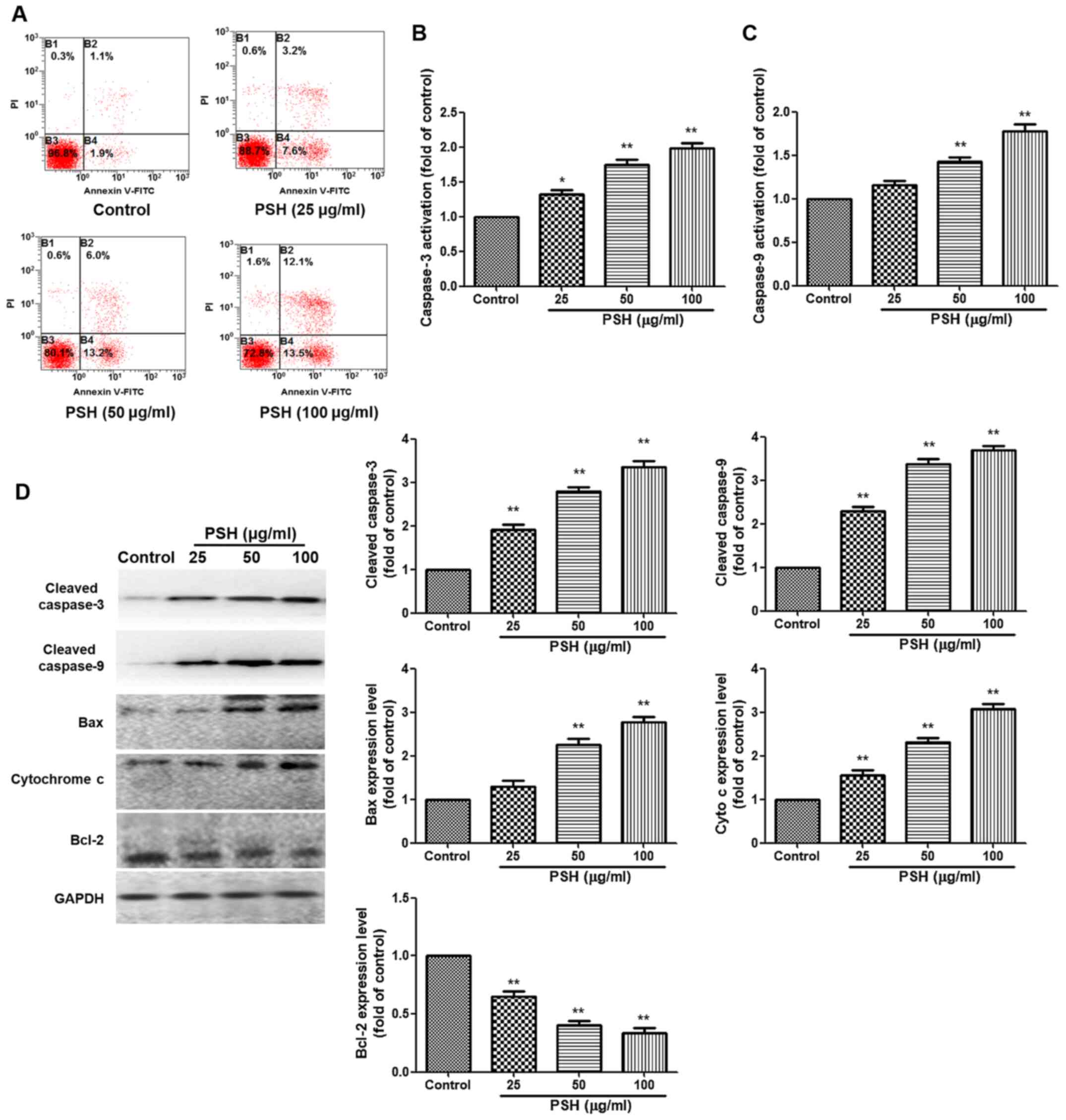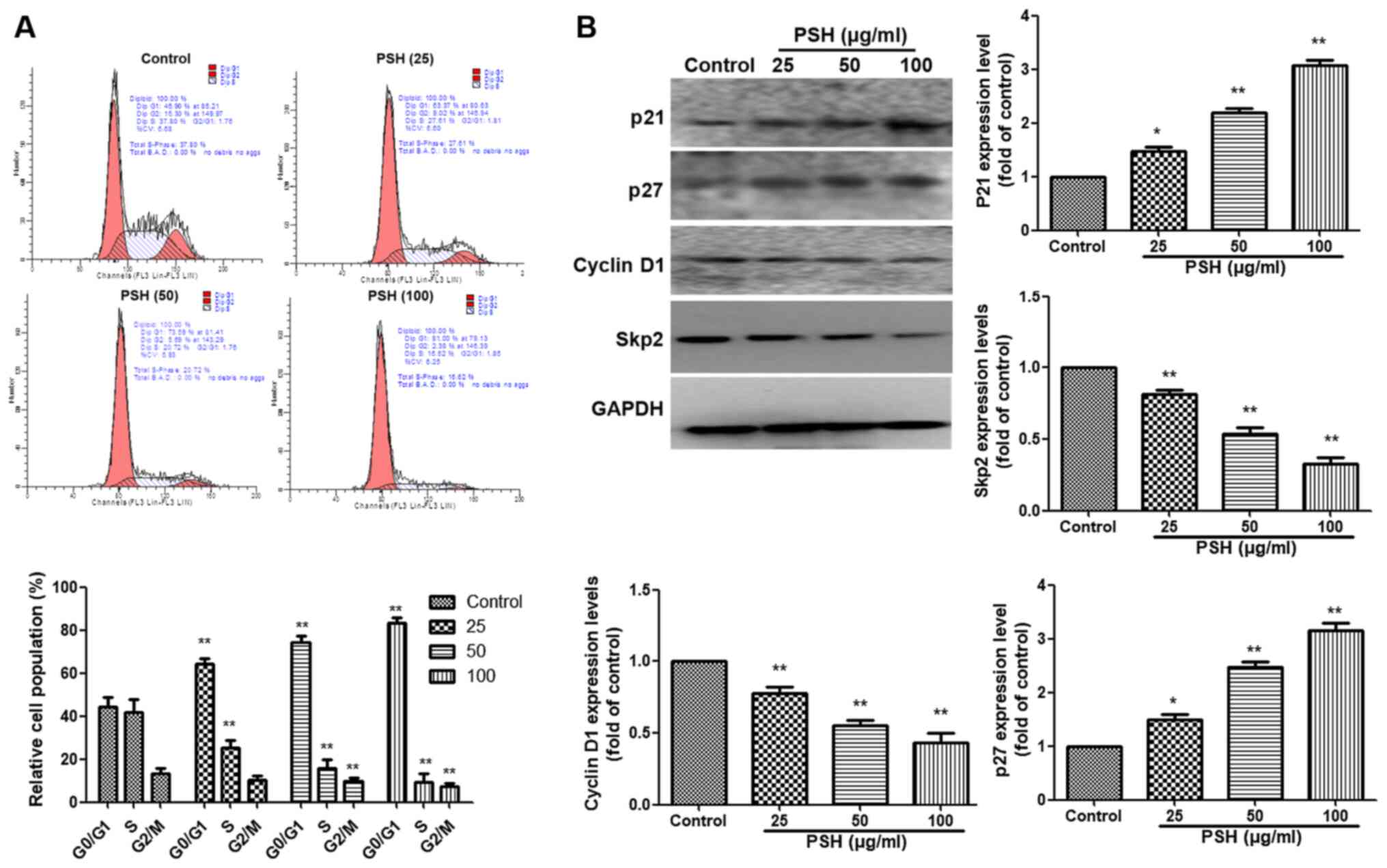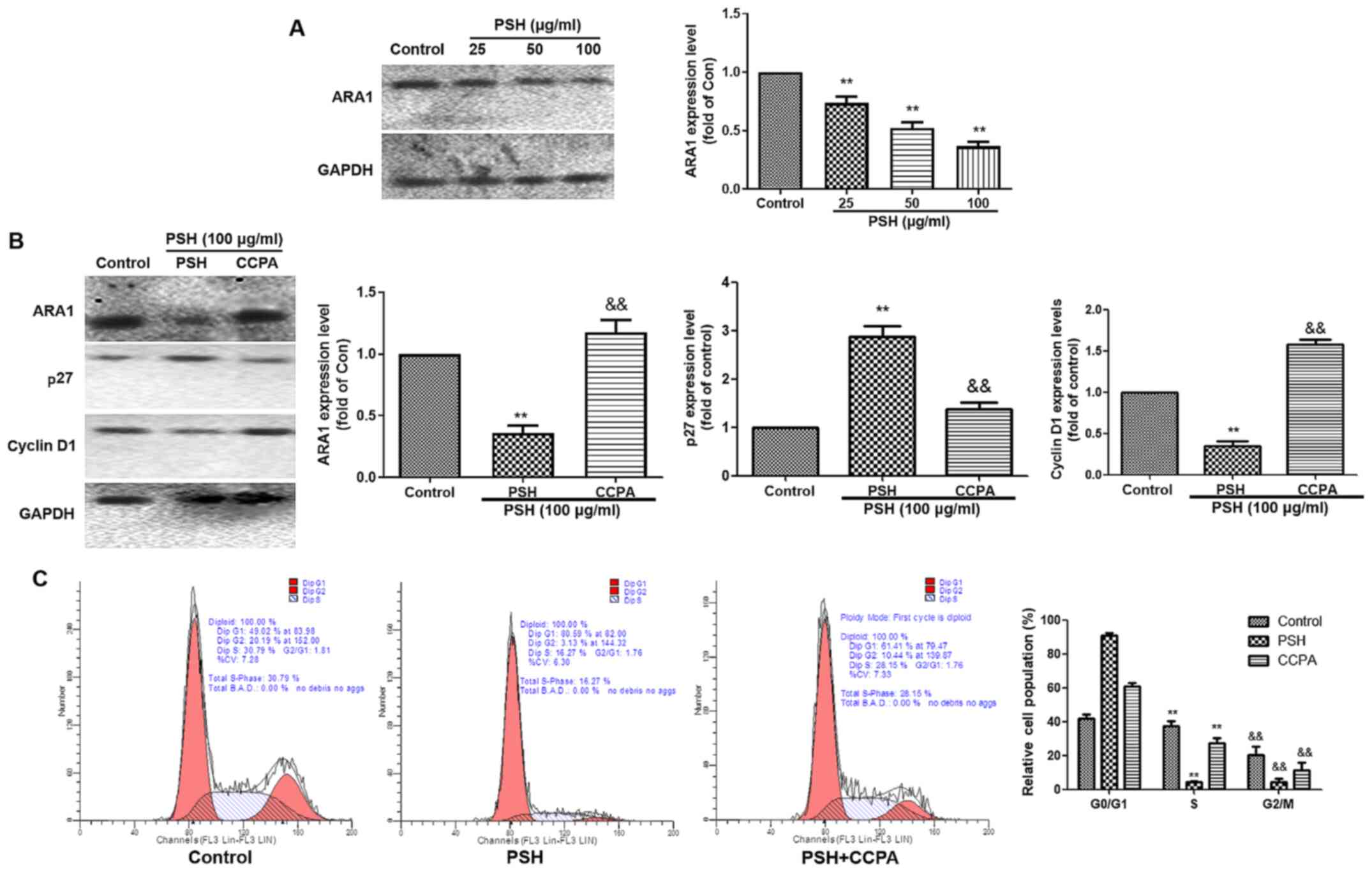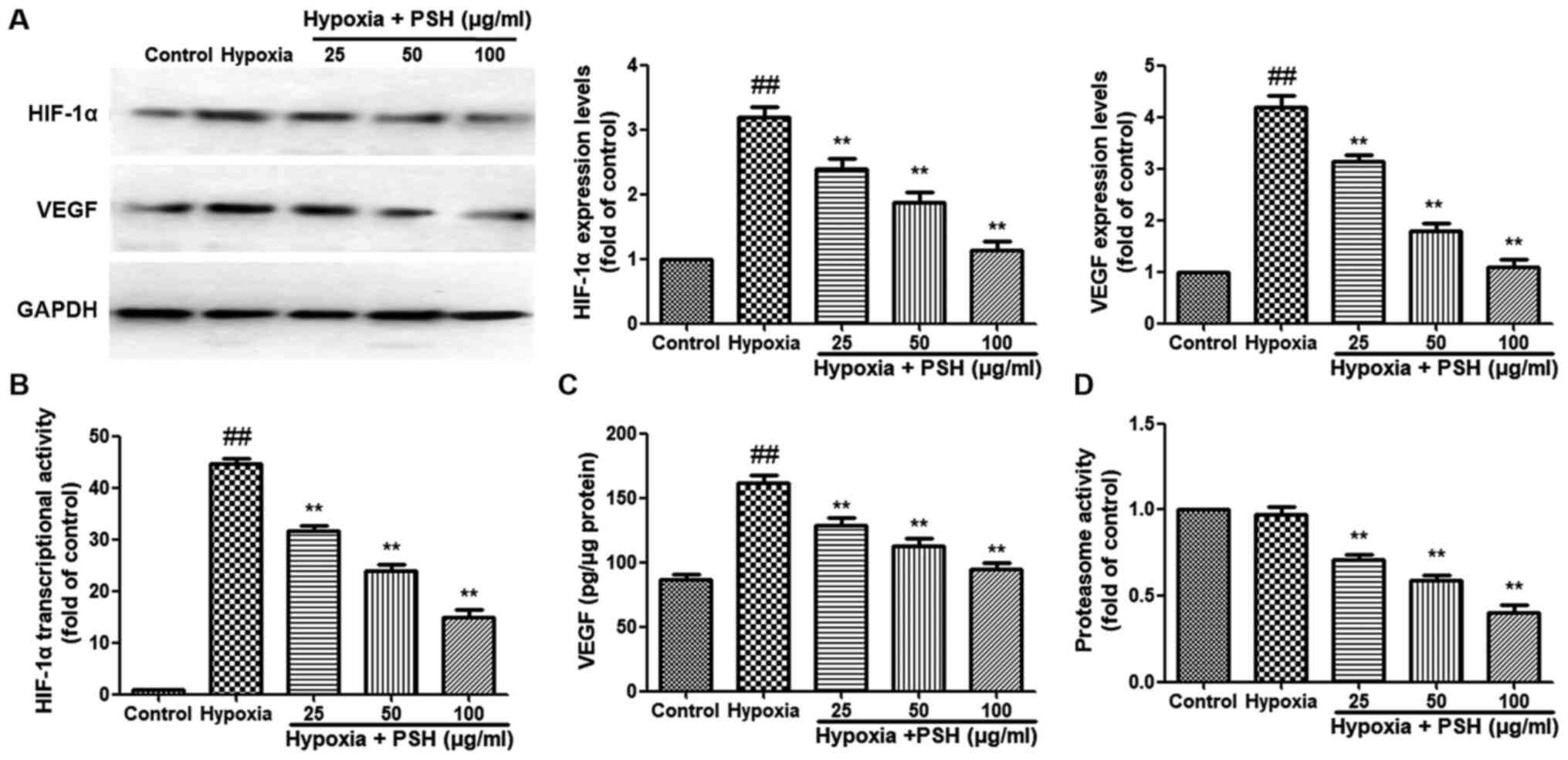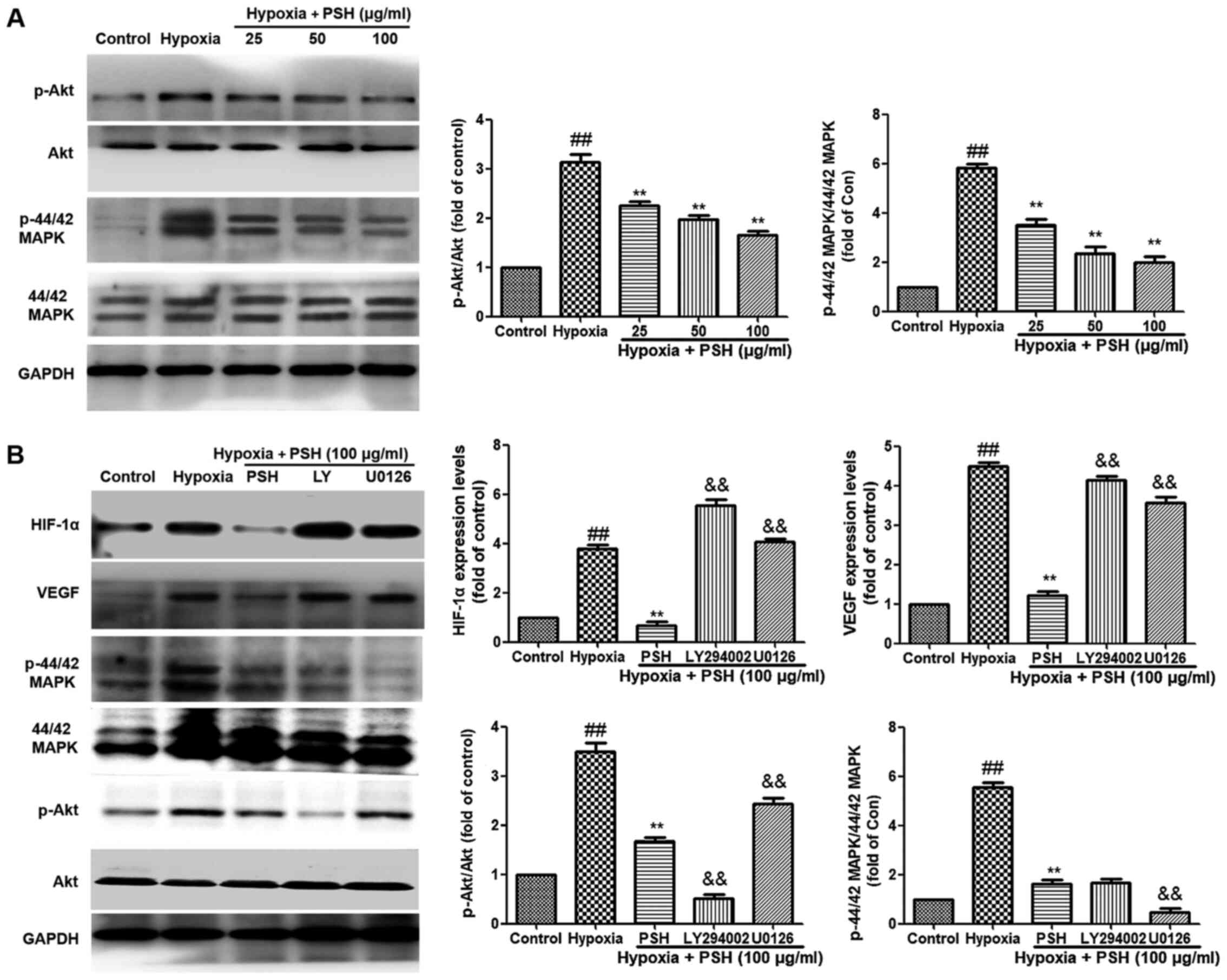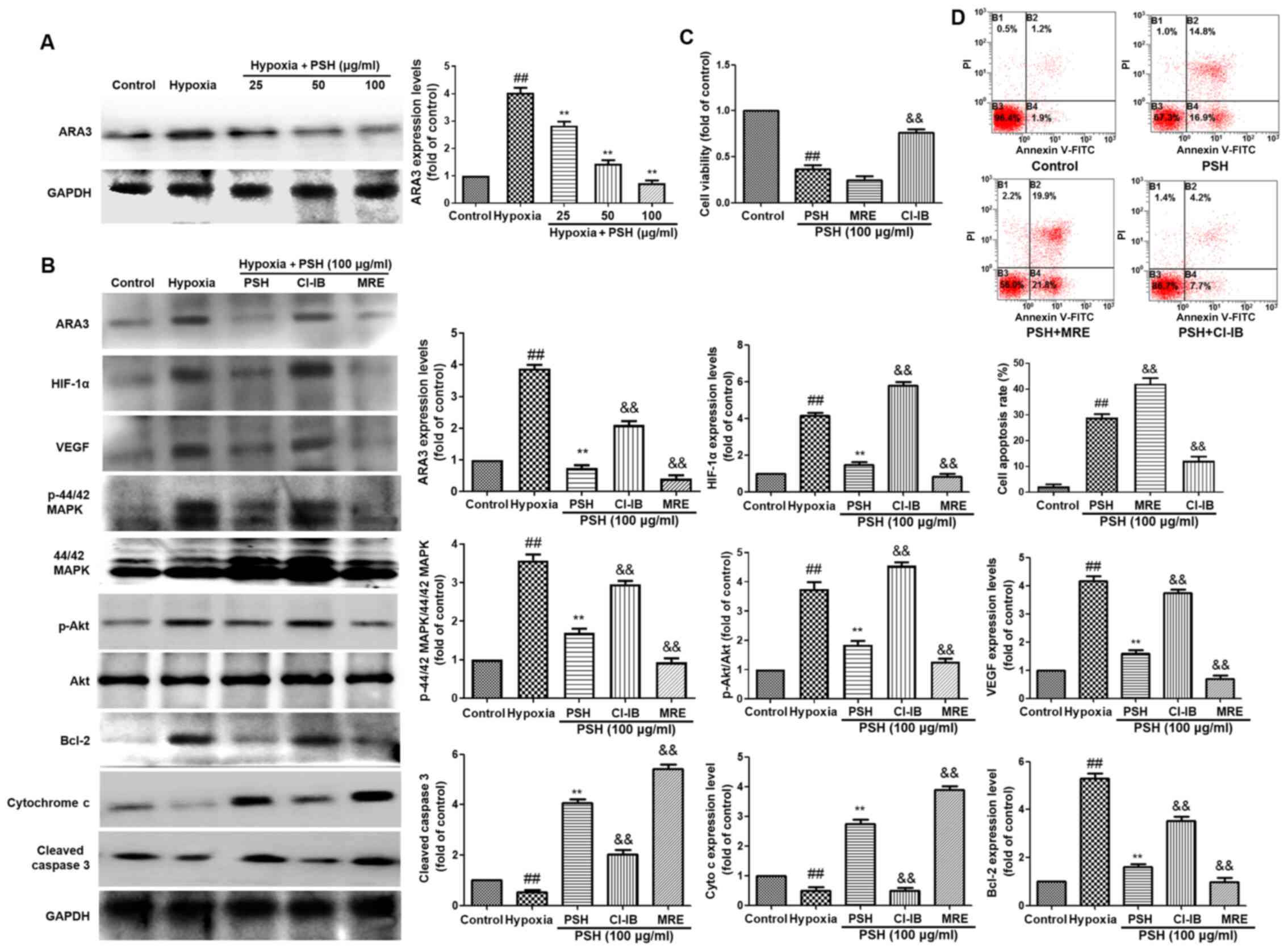|
1
|
Ordys BB, Launay S, Deighton RF, McCulloch
J and Whittle IR: The role of mitochondria in glioma
pathophysiology. Mol Neurobiol. 42:64–75. 2010. View Article : Google Scholar : PubMed/NCBI
|
|
2
|
Batash R, Asna N, Schaffer P, Francis N
and Schaffer M: Glioblastoma multiforme, diagnosis and treatment;
recent literature review. Curr Med Chem. 24:3002–3009. 2017.
View Article : Google Scholar : PubMed/NCBI
|
|
3
|
de Almeida Sassi F, Lunardi Brunetto A,
Schwartsmann G, Roesler R and Abujamra AL: Glioma revisited: From
neurogenesis and cancer stem cells to the epigenetic regulation of
the niche. J Oncol. 2012:5378612012. View Article : Google Scholar : PubMed/NCBI
|
|
4
|
Yang L, Lin C, Wang L, Guo H and Wang X:
Hypoxia and hypoxia-inducible factors in glioblastoma multiforme
progression and therapeutic implications. Exp Cell Res.
318:2417–2426. 2012. View Article : Google Scholar : PubMed/NCBI
|
|
5
|
Shahar T, Nossek E, Steinberg DM, Rozovski
U, Blumenthal DT, Bokstein F, Sitt R, Freedman S, Corn BW, Kanner
AA and Ram Z: The impact of enrollment in clinical trials on
survival of patients with glioblastoma. J Clin Neurosci.
19:1530–1534. 2012. View Article : Google Scholar : PubMed/NCBI
|
|
6
|
Patil SA, Hosni-Ahmed A, Jones TS, Patil
R, Pfeffer LM and Miller DD: Novel approaches to glioma drug design
and drug screening. Expert Opin Drug Discov. 8:1135–1151. 2013.
View Article : Google Scholar : PubMed/NCBI
|
|
7
|
Torres Á, Erices JI, Sanchez F, Ehrenfeld
P, Turchi L, Virolle T, Uribe D, Niechi I, Spichiger C, Rocha JD,
et al: Extracellular adenosine promotes cell migration/invasion of
glioblastoma stem-like cells through A3 adenosine
receptor activation under hypoxia. Cancer Lett. 446:112–122. 2019.
View Article : Google Scholar : PubMed/NCBI
|
|
8
|
Melani A, De Micheli E, Pinna G, Alfieri
A, Corte LD and Pedata F: Adenosine extracellular levels in human
brain gliomas: An intraoperative microdialysis study. Neurosci
Lett. 346:93–96. 2003. View Article : Google Scholar : PubMed/NCBI
|
|
9
|
Fredholm BB, IJzerman AP, Jacobson KA,
Klotz KN and Linden J: International union of pharmacology. XXV.
Nomenclature and classification of adenosine receptors. Pharmacol
Rev. 53:527–552. 2001.PubMed/NCBI
|
|
10
|
Castillo CA, León D, Ruiz MA, Albasanz JL
and Martín M: Modulation of adenosine A1 and A2A receptors in C6
glioma cells during hypoxia: Involvement of endogenous adenosine. J
Neurochem. 105:2315–2329. 2008. View Article : Google Scholar : PubMed/NCBI
|
|
11
|
Wang XY, Chen XL, Tang HF, Gao H, Tian XR
and Zhang PH: Cytotoxic triterpenoid saponins from the rhizomes of
Anemone taipaiensis. Planta Med. 77:1550–1554. 2011. View Article : Google Scholar : PubMed/NCBI
|
|
12
|
Wang XY, Gao H, Zhang W, Li Y, Cheng G,
Sun XL and Tang HF: Bioactive oleanane-type saponins from the
rhizomes of Anemone taipaiensis. Bioorg Med Chem Lett.
23:5714–5720. 2013. View Article : Google Scholar : PubMed/NCBI
|
|
13
|
Ji C, Cheng G, Tang H, Zhang Y, Hu Y,
Zheng M and Fei Z: Saponin 6 of Anemone taipaiensis inhibits
proliferation and induces apoptosis of U87 MG cells. Xi Bao Yu Fen
Zi Mian Yi Xue Za Zhi. 31:484–486. 2015.In Chinese. PubMed/NCBI
|
|
14
|
Zhang W, Zhang D, Ma X, Liu Z, Li F and Wu
D: Paris saponin VII suppressed the growth of human cervical cancer
Hela cells. Eur J Med Res. 19:412014. View Article : Google Scholar : PubMed/NCBI
|
|
15
|
Zhang T, Liu H, Liu XT, Xu DR, Chen XQ and
Wang Q: Qualitative and quantitative analysis of steroidal saponins
in crude extracts from Paris polyphylla var. yunnanensis and P.
polyphylla var. chinensis by high performance liquid chromatography
coupled with mass spectrometry. J Pharm Biomed Anal. 51:114–124.
2010. View Article : Google Scholar
|
|
16
|
Sun J, Liu BR, Hu WJ, Yu LX and Qian XP:
In vitro anticancer activity of aqueous extracts and ethanol
extracts of fifteen traditional Chinese medicines on human
digestive tumor cell lines. Phytother Res. 21:1102–1104. 2007.
View Article : Google Scholar : PubMed/NCBI
|
|
17
|
Negi JS, Bisht VK, Bhandari AK, Bhatt VP,
Singh P and Singh N: Paris polyphylla: Chemical and biological
prospectives. Anticancer Agents Med Chem. 14:833–839. 2014.
View Article : Google Scholar : PubMed/NCBI
|
|
18
|
Pang D, Li C, Yang C, Zou Y, Feng B, Li L,
Liu W, Geng Y, Luo Q, Chen Z and Huang C: Polyphyllin VII promotes
apoptosis and autophagic cell death via ROS-inhibited AKT activity,
and sensitizes glioma cells to temozolomide. Oxid Med Cell Longev.
2019:18056352019. View Article : Google Scholar : PubMed/NCBI
|
|
19
|
Yu Q, Li Q, Lu P and Chen Q: Polyphyllin D
induces apoptosis in U87 human glioma cells through the c-Jun
NH2-terminal kinase pathway. J Med Food. 17:1036–1042. 2014.
View Article : Google Scholar : PubMed/NCBI
|
|
20
|
Xiao X, Yang M, Xiao J, Zou J, Huang Q,
Yang K, Zhang B, Yang F, Liu S, Wang H and Bai P: Paris saponin II
suppresses the growth of human ovarian cancer xenografts via
modulating VEGF-mediated angiogenesis and tumor cell migration.
Cancer Chemother Pharmacol. 73:807–818. 2014. View Article : Google Scholar : PubMed/NCBI
|
|
21
|
Cong Y, Liu X, Kang L, Yu Z, Zhao Z, Li J,
Ma B and Cong Y: Pennogenin tetraglycoside stimulates
secretion-dependent activation of rat platelets: Evidence for
critical roles of adenosine diphosphate receptor signal pathways.
Thromb Res. 129:e209–e216. 2012. View Article : Google Scholar : PubMed/NCBI
|
|
22
|
Cohen FR, Lazareno S and Birdsall NJ: The
effects of saponin on the binding and functional properties of the
human adenosine A1 receptor. Br J Pharmacol. 117:1521–1529. 1996.
View Article : Google Scholar : PubMed/NCBI
|
|
23
|
Xie X, Zhu H, Zhang J, Wang M, Zhu L, Guo
Z, Shen W and Wang D: Solamargine inhibits the migration and
invasion of HepG2 cells by blocking epithelial-to-mesenchymal
transition. Oncol Lett. 14:447–452. 2017. View Article : Google Scholar : PubMed/NCBI
|
|
24
|
D'Agostino A, Stellavato A, Busico T, Papa
A, Tirino V, Papaccio G, La Gatta A, De Rosa M and Schiraldi C: In
vitro analysis of the effects on wound healing of high- and
low-molecular weight chains of hyaluronan and their hybrid
H-HA/L-HA complexes. BMC Cell Biol. 16:192015. View Article : Google Scholar : PubMed/NCBI
|
|
25
|
Crocetti E, Trama A, Stiller C, Caldarella
A, Soffietti R, Jaal J, Weber DC, Ricardi U, Slowinski J and
Brandes A; RARECARE working group: Epidemiology of glial and
non-glial brain tumours in Europe. Eur J Cancer. 48:1532–1542.
2012. View Article : Google Scholar : PubMed/NCBI
|
|
26
|
Ricard D, Idbaih A, Ducray F, Lahutte M,
Hoang-Xuan K and Delattre JY: Primary brain tumours in adults.
Lancet. 379:1984–1996. 2012. View Article : Google Scholar : PubMed/NCBI
|
|
27
|
Trembath DG, Lal A, Kroll DJ, Oberlies NH
and Riggins GJ: A novel small molecule that selectively inhibits
glioblastoma cells expressing EGFRvIII. Mol Cancer. 6:302007.
View Article : Google Scholar : PubMed/NCBI
|
|
28
|
Frosina G: DNA repair and resistance of
gliomas to chemotherapy and radiotherapy. Mol Cancer Res.
7:989–999. 2009. View Article : Google Scholar : PubMed/NCBI
|
|
29
|
Ma L, Wen S, Zhan Y, He Y, Liu X and Jiang
J: Anticancer effects of the Chinese medicine matrine on murine
hepatocellular carcinoma cells. Planta Med. 74:245–251. 2008.
View Article : Google Scholar : PubMed/NCBI
|
|
30
|
Huang MY, Zhang LL, Ding J and Lu JJ:
Anticancer drug discovery from Chinese medicinal herbs. Chin Med.
13:352018. View Article : Google Scholar : PubMed/NCBI
|
|
31
|
Liu GX, Wang TT, Hu WJ, Qian XP, Yu LX and
Liu BR: Anticancer effect of Rhizoma Paridis on primary cancer
cells isolated from malignant pleural effusion and ascites. Pract
Geriatr. 22:1012008.
|
|
32
|
Li X, Wang JH and Xiao YX: Effect of
paridis extract on proliferation of human colon cancer SW480 cells
and mechanism of the effect. Chin J Biol. 23:619–622+632. 2010.
|
|
33
|
Chan JY, Koon JC, Liu X, Detmar M, Yu B,
Kong SK and Fung KP: Polyphyllin D, a steroidal saponin from Paris
polyphylla, inhibits endothelial cell functions in vitro and
angiogenesis in zebrafish embryos in vivo. J Ethnopharmacol.
137:64–69. 2011. View Article : Google Scholar : PubMed/NCBI
|
|
34
|
Xiao X, Bai P, Bui Nguyen TM, Xiao J, Liu
S, Yang G, Hu L, Chen X, Zhang X, Liu J and Wang H: The antitumoral
effect of Paris saponin I associated with the induction of
apoptosis through the mitochondrial pathway. Mol Cancer Ther.
8:1179–1188. 2009. View Article : Google Scholar : PubMed/NCBI
|
|
35
|
Man SL, Wang YL, Li YY, Gao WY, Huang XX
and Ma CY: Phytochemistry, pharmacology, toxicology, and
structure-cytotoxicity relationship of paridis rhizome saponin.
Chin Herbal Med. 5:33–46. 2013.
|
|
36
|
Shackelford RE, Kaufmann WK and Paules RS:
Cell cycle control, checkpoint mechanisms, and genotoxic stress.
Environ Health Perspect. 107(Suppl 1): S5–S24. 1999.
|
|
37
|
Mork C, Faller D and Spanjaard R: A
mechanistic approach to anticancer therapy: Targeting the cell
cycle with histone deacetylase inhibitors. Curr Pharm Des.
11:1091–1104. 2005. View Article : Google Scholar : PubMed/NCBI
|
|
38
|
Evron E, Umbricht CB, Korz D, Raman V,
Loeb DM, Niranjan B, Buluwela L, Weitzman SA, Marks J and Sukumar
S: Loss of cyclin D2 expression in the majority of breast cancers
is associated with promoter hypermethylation. Cancer Res.
61:2782–2787. 2001.PubMed/NCBI
|
|
39
|
Harper JW, Elledge SJ, Keyomarsi K,
Dynlacht B, Tsai LH, Zhang P, Dobrowolski S, Bai C, Connell-Crowley
L, Swindell E, et al: Inhibition of cyclin-dependent kinases by
p21. Mol Biol Cell. 6:387–400. 1995. View Article : Google Scholar : PubMed/NCBI
|
|
40
|
Dehnhardt M, Palm C, Vieten A, Bauer A and
Pietrzyk U: Quantifying the A1AR distribution in peritumoural zones
around experimental F98 and C6 rat brain tumours. J Neurooncol.
85:49–63. 2007. View Article : Google Scholar : PubMed/NCBI
|
|
41
|
Stone TW, Ceruti S and Abbracchio MP:
Adenosine receptors and neurological disease: Neuroprotection and
neurodegeneration. Handb Exp Pharmacol. 45:535–587. 2009.
View Article : Google Scholar
|
|
42
|
Thienpont B, Steinbacher J, Zhao H, D'Anna
F, Kuchnio A, Ploumakis A, Ghesquière B, Van Dyck L, Boeckx B,
Schoonjans L, et al: Tumour hypoxia causes DNA hypermethylation by
reducing TET activity. Nature. 537:63–68. 2016. View Article : Google Scholar : PubMed/NCBI
|
|
43
|
Badowska-Kozakiewicz AM, Sobol M and
Patera J: Expression of multidrug resistance protein P-glycoprotein
in correlation with markers of hypoxia (HIF-1α, EPO, EPO-R) in
invasive breast cancer with metastasis to lymph nodes. Arch Med
Sci. 13:1303–1314. 2017. View Article : Google Scholar : PubMed/NCBI
|
|
44
|
Semenza GL: Regulation of cancer cell
metabolism by hypoxia-inducible factor 1. Semin Cancer Biol.
19:12–16. 2009. View Article : Google Scholar
|
|
45
|
Veschini L, Belloni D, Foglieni C, Cangi
MG, Ferrarini M, Caligaris-Cappio F and Ferrero E:
Hypoxia-inducible transcription factor-1 alpha determines
sensitivity of endothelial cells to the proteosome inhibitor
bortezomib. Blood. 109:2565–2570. 2007. View Article : Google Scholar
|
|
46
|
Boddy JL, Fox SB, Han C, Campo L, Turley
H, Kanga S, Malone PR and Harris AL: The androgen receptor is
significantly associated with vascular endothelial growth factor
and hypoxia sensing via hypoxia-inducible factors HIF-1a, HIF-2a,
and the prolyl hydroxylases in human prostate cancer. Clin Cancer
Res. 11:7658–7663. 2005. View Article : Google Scholar : PubMed/NCBI
|
|
47
|
Ceradini DJ, Kulkarni AR, Callaghan MJ,
Tepper OM, Bastidas N, Kleinman ME, Capla JM, Galiano RD, Levine JP
and Gurtner GC: Progenitor cell trafficking is regulated by hypoxic
gradients through HIF-1 induction of SDF-1. Nat Med. 10:858–864.
2004. View
Article : Google Scholar : PubMed/NCBI
|
|
48
|
Kitajima Y, Ide T, Ohtsuka T and Miyazaki
K: Induction of hepatocyte growth factor activator gene expression
under hypoxia activates the hepatocyte growth factor/c-Met system
via hypoxia inducible factor-1 in pancreatic cancer. Cancer Sci.
99:1341–1347. 2008. View Article : Google Scholar : PubMed/NCBI
|
|
49
|
Jiang BH and Liu LZ: PI3K/PTEN signaling
in angiogenesis and tumorigenesis. Adv Cancer Res. 102:19–65. 2009.
View Article : Google Scholar : PubMed/NCBI
|
|
50
|
Sang N, Stiehl DP, Bohensky J, Leshchinsky
I, Srinivas V and Caro J: MAPK signaling up-regulates the activity
of hypoxia-inducible factors by its effects on p300. J Biol Chem.
278:14013–14019. 2003. View Article : Google Scholar : PubMed/NCBI
|
|
51
|
Richard DE, Berra E, Gothié E, Roux D and
Pouysségur J: p42/p44 mitogen-activated protein kinases
phosphorylate hypoxia-inducible factor 1alpha (HIF-1alpha) and
enhance the transcriptional activity of HIF-1. J Biol Chem.
274:32631–32637. 1999. View Article : Google Scholar : PubMed/NCBI
|
|
52
|
Mylonis I, Chachami G, Samiotaki M,
Panayotou G, Paraskeva E, Kalousi A, Georgatsou E, Bonanou S and
Simos G: Identification of MAPK phosphorylation sites and their
role in the localization and activity of hypoxia-inducible
factor-1alpha. J Biol Chem. 281:33095–33106. 2006. View Article : Google Scholar : PubMed/NCBI
|
|
53
|
Fishman P, Bar-Yehuda S, Madi L and Cohn
I: A3 adenosine receptor as a target for cancer therapy. Anticancer
Drugs. 13:437–443. 2002. View Article : Google Scholar : PubMed/NCBI
|
|
54
|
Merighi S, Benini A, Mirandola P, Gessi S,
Varani K, Leung E, Maclennan S and Borea PA: Adenosine modulates
vascular endothelial growth factor expression via hypoxia-inducible
factor-1 in human glioblastoma cells. Biochem Pharmacol. 72:19–31.
2006. View Article : Google Scholar : PubMed/NCBI
|
|
55
|
Merighi S, Benini A, Mirandola P, Gessi S,
Varani K, Leung E, Maclennan S, Baraldi PG and Borea PA: Hypoxia
inhibits paclitaxel-induced apoptosis through adenosine-mediated
phosphorylation of bad in glioblastoma cells. Mol Pharmacol.
72:162–172. 2007. View Article : Google Scholar : PubMed/NCBI
|
|
56
|
Gessi S, Sacchetto V, Fogli E, Merighi S,
Varani K, Baraldi PG, Tabrizi MA, Leung E, Maclennan S and Borea
PA: Modulation of metalloproteinase-9 in U87MG glioblastoma cells
by A3 adenosine receptors. Biochem Pharmacol. 79:1483–1495. 2010.
View Article : Google Scholar : PubMed/NCBI
|















